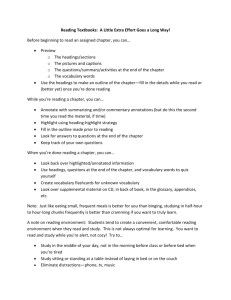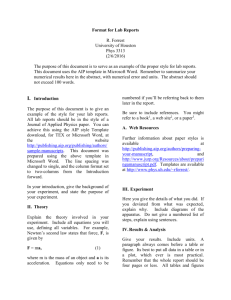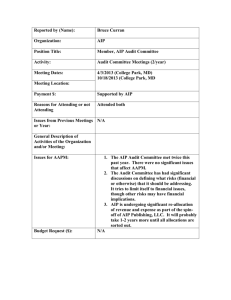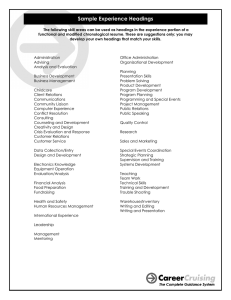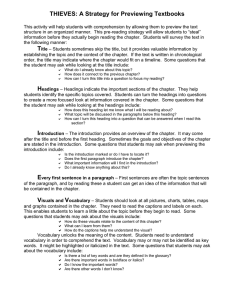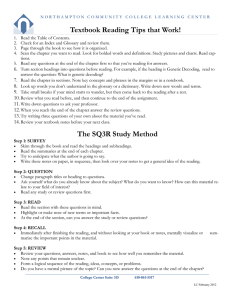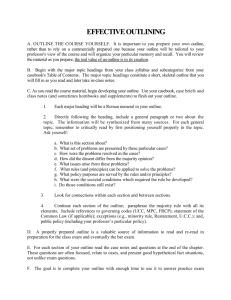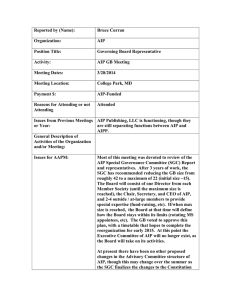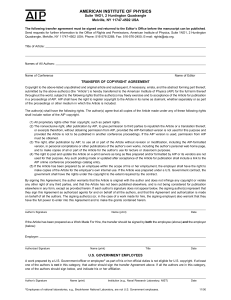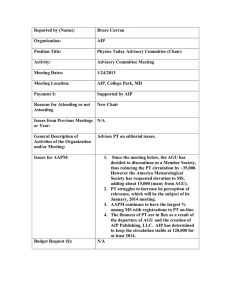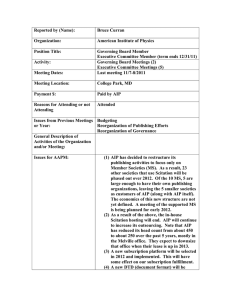5.92 Style Guide I. Overview of style
advertisement
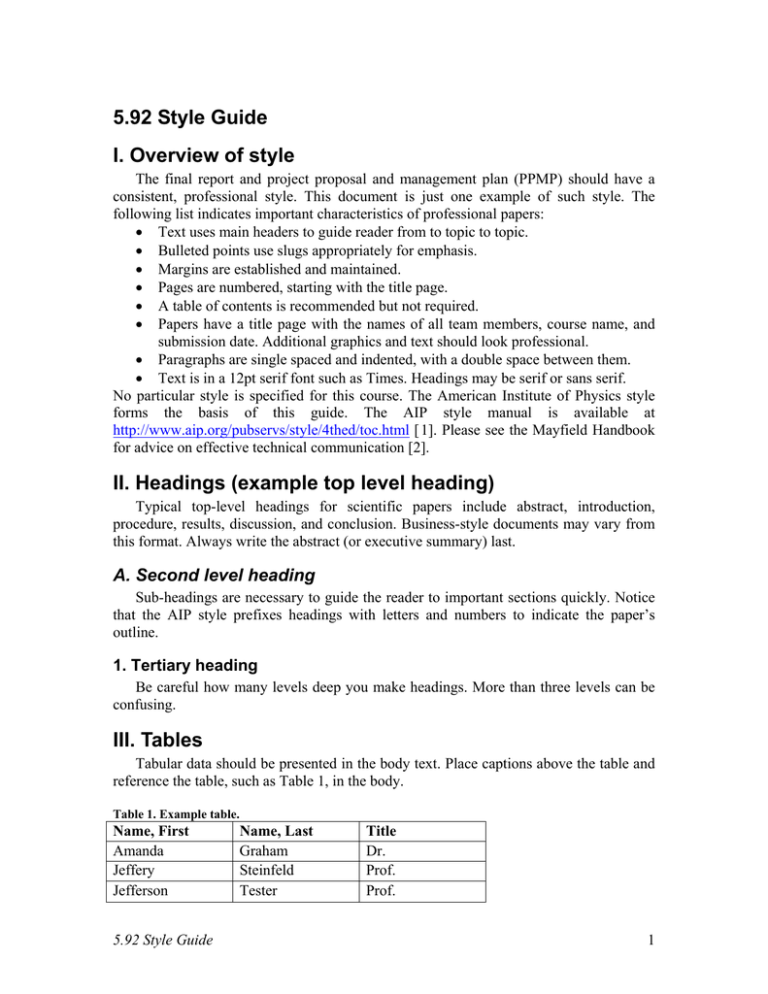
5.92 Style Guide I. Overview of style The final report and project proposal and management plan (PPMP) should have a consistent, professional style. This document is just one example of such style. The following list indicates important characteristics of professional papers: • Text uses main headers to guide reader from to topic to topic. • Bulleted points use slugs appropriately for emphasis. • Margins are established and maintained. • Pages are numbered, starting with the title page. • A table of contents is recommended but not required. • Papers have a title page with the names of all team members, course name, and submission date. Additional graphics and text should look professional. • Paragraphs are single spaced and indented, with a double space between them. • Text is in a 12pt serif font such as Times. Headings may be serif or sans serif. No particular style is specified for this course. The American Institute of Physics style forms the basis of this guide. The AIP style manual is available at http://www.aip.org/pubservs/style/4thed/toc.html [ 1]. Please see the Mayfield Handbook for advice on effective technical communication [2]. II. Headings (example top level heading) Typical top-level headings for scientific papers include abstract, introduction, procedure, results, discussion, and conclusion. Business-style documents may vary from this format. Always write the abstract (or executive summary) last. A. Second level heading Sub-headings are necessary to guide the reader to important sections quickly. Notice that the AIP style prefixes headings with letters and numbers to indicate the paper’s outline. 1. Tertiary heading Be careful how many levels deep you make headings. More than three levels can be confusing. III. Tables Tabular data should be presented in the body text. Place captions above the table and reference the table, such as Table 1, in the body. Table 1. Example table. Name, First Amanda Jeffery Jefferson 5.92 Style Guide Name, Last Graham Steinfeld Tester Title Dr. Prof. Prof. 1 IV. Figures Captions must be placed below associated figures. Images should be embedded in the text or placed in an appendix. References to each image (such as Figure 1) must be included in the text. Figure 1. Example figure. Wikipedia is a great resource, but do not reference it directly. From [ 3]. V. References All resources must be properly referenced. References should be numbered consecutively according to their first mention in the manuscript. Bibliographic citations should be placed at the end of the document with corresponding number. See the AIP style manual for citation formats [ 1]. 1. AIP Style Manual, Fourth Edition. American Institute of Physics, 1990. http://www.aip.org/pubservs/style/4thed/toc.html Accessed March 6, 2007. 2. Perelman, L.C., Paradis, L., Barrett, E. The Mayfield Handbook of Technical and Scientific Writing. http://www.mhhe.com/mayfieldpub/tsw/home.htm Accessed March 7, 2007. 3. Wikipedia. http://en.wikipedia.org/wikik/Globe Accessed July 1, 2007. 5.92 Style Guide 2
